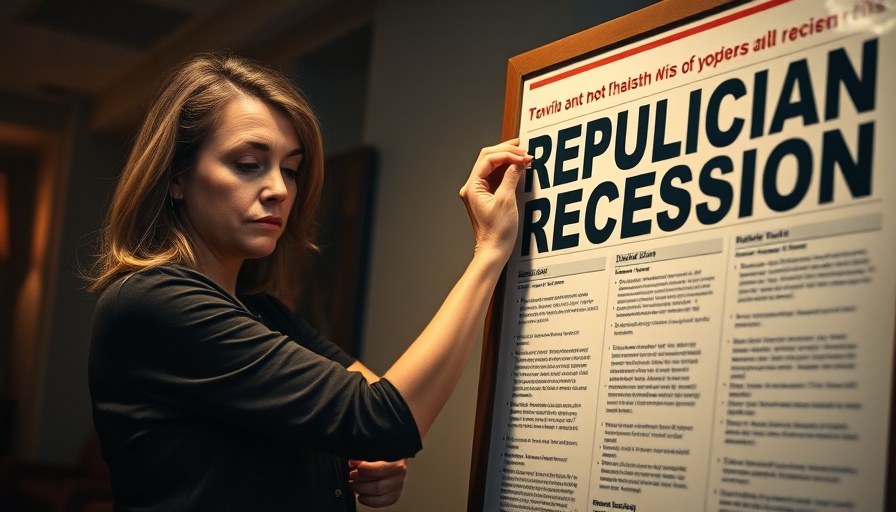
Fearing a Recession: What It Means for Americans
In a recent survey, nearly two-thirds of Americans expressed concern that a recession is on the horizon. As inflation continues to rise, and economic indicators show signs of instability, these fears have grown palpable among households across the country. The data reveals that 63% of participants believe a recession is likely within the next year. This statistic isn’t just a number; it represents a growing unease shaping the decisions of families, businesses, and policymakers alike.
Understanding the Public Sentiment on the Economy
A deeper look at the survey reveals several key demographic trends. Younger adults, particularly those aged 18-29, are most anxious about the potential financial downturn, with 75% voicing worries about their economic futures. In contrast, older demographics, while still concerned, seem less affected by these fears. This generational divide highlights differing experiences with past recessions and economic stability. The anxiety among younger adults, often facing student loans and the high costs of living, contributes to their heightened worries.
Historical Context: Economy and Recessions
The United States has faced economic downturns before, from the Great Depression to the 2008 financial crisis. Each event left indelible marks on the American psyche, altering spending behaviors, saving patterns, and overall confidence in the economy. Historical analysis shows that the effects of a recession can linger for years, reshaping how people approach personal finances and nest-egg planning.
The Relevance of Current Events: Inflation and Market Trends
Today’s economic landscape is particularly challenging, marked by soaring inflation rates that reached levels not seen in decades. Gas prices, food costs, and living expenses are climbing, leading many households to tighten their belts. Data from the Bureau of Labor Statistics indicates continued price increases across various essential goods and services, fueling the apprehension surrounding a recession. Understanding how these dynamics play into public perception is crucial for both consumers and politicians.
Taking Action: Steps Individuals Can Take
In light of these concerns, it’s vital for individuals to equip themselves with knowledge and resources to navigate challenging financial times. Seeking professional financial advice, whether from a financial advisor or legal expert, can provide clarity. Creating a budget that prioritizes savings, cutting unnecessary expenses, and exploring alternative income streams are proactive steps consumers can take to safeguard their financial well-being.
Future Predictions: What Lies Ahead?
Experts speculate on potential opportunities and threats lurking just beyond the horizon. Some suggest investing in stable assets or even exploring local business ventures. Others warn that increased interest rates could deter consumer spending, amplifying recession fears. It’s essential for individuals and families to remain informed about economic policies and market trends as 2025 approaches.
Conclusion: Navigating Uncertain Times
As individuals grapple with these looming fears of a recession, staying informed is more crucial than ever. Engaging with local news and expert analysis can help navigate these uncertain waters. Following updates on current events allows consumers to make informed decisions about their financial futures. By remaining proactive, individuals can mitigate the effects of whatever economic shifts may come.
For those concerned about their legal and financial well-being during potentially turbulent times, seeking guidance from credible experts can provide necessary support. Don’t let fear dictate your financial choices; take action and prepare for the future with confidence.
 Add Row
Add Row  Add
Add 




 Add Row
Add Row  Add
Add 

Write A Comment